 September 2, 2021 John E. Ross, KD8IDJ, Editor
| ||||||
Hurricane Watch Net, VoIP Hurricane Net Reports Valuable to Forecasters During Ida The Hurricane Watch Net (HWN) and the VoIP Hurricane Net (VoIP WX) were busy gathering ground-truth weather observations from
radio amateurs as Hurricane Ida slammed into the Louisiana Gulf Coast on August 29 as a powerful Category 4 storm. ARRL Amateur Radio Emergency Service (ARES®) teams in Mississippi activated. Ida wrought extensive damage, especially in Louisiana and Mississippi, and left some 1 million customers in New Orleans and elsewhere without power -- and some communities without water. Downgraded to a tropical depression, Ida continued its path up the eastern seaboard, causing further flash flooding and damage and even spawning a few tornadoes in the mid-Atlantic states. The storm shut down New York City's subways as well as rail and air traffic in New Jersey before moving into New England. At least 10 people died in the region as a result of the storm. For the HWN, it was all hands on deck on Sunday, August 29, as the net resumed operation on both 14.325 MHz and 7.268 MHz. "We had
a great number of reporting stations throughout the day and well into the evening," HWN Manager Bobby Graves, KB5HAV, said. "Unfortunately, there were times in which propagation completely disappeared." All told, the HWN was activated for 26 hours over the weekend, fielding reports ranging from mild winds to very high winds and torrential rainfall. The VoIP Hurricane Net activation for Hurricane Ida wrapped up on Monday, August 30 after handling dozens of reports from stations in the affected area of Hurricane Ida that were sent to WX4NHC, the National Hurricane Center Amateur Radio Station. VoIP Hurricane Net Manager Rob Macedo, KD1CY, said radio amateurs on the N5OZG repeater system "provided The Amateur Radio Emergency Service® (ARES®) in Mississippi activated on August 29 with several nets. Southeast Mississippi District On Sunday, August 29, VHF ARES nets were activated around the state for the purpose of passing weather reports, health-and-welfare traffic, and damage reports as needed. Both the Mississippi ARES Emergency Net and the Mississippi Winlink Net activated on August 29. The Winlink Net operated until 1800 on August 30, passing 80 messages, which were copied to KM5EMA, the Winlink station at the Mississippi Emergency Management Agency. "While Mississippi avoided major catastrophe, the ARES teams were well equipped and prepared to provide the communication support that we count on them for," Mississippi Public Information Coordinator Caleb Rich, K5RFL, said. Read an expanded version. FEMA Announces HF Interoperability Activity on 60-Meter Channels 1 and 2 Channels 1 and 2 on 60 meters will be available starting on August 30 for interoperability between US government and US amateur radio
stations involved in Hurricane Ida emergency communications. This situation will remain in place until the storm has passed and the need for these channels no longer exists, or on September 6, whichever comes first. These frequencies will be used: Channel 1 Primary voice traffic 5332 kHz channel center, 5330.5 kHz USB voice; and Channel 2 digital traffic 5348 kHz channel center, 5346.5 kHz USB with 1.5 kHz offset to center of digital waveform. Stations on 60 meters are asked to yield to operational traffic related to Hurricane Ida. The federal government is primary on 60 meters, and amateur radio is secondary, on a non-interference basis. FCC Grants 60-Day Waiver of Part 97 Data Rate Rules for Hurricane Relief Traffic In an August 30 Order, the FCC granted a temporary waiver sought by ARRL to facilitate relief communications related to Hurricane Ida. The waiver also applies to relief communications directly related to any future hurricane within the next 60 days. The waiver permits radio amateurs handling hurricane relief communications on HF to use any protocol that would comply with the FCC's rules but for the symbol rate limits. In its request, ARRL said that Section 97.307(f) of the FCC's Amateur Service rules prevents the use on HF of certain protocols capable of On August 28, the FCC orally granted ARRL's request to immediately facilitate relief communications related to Hurricane Ida. The FCC has granted temporary waivers in the past to allow faster protocols to be used for disaster relief communications, including Hurricane Laura, Hurricane Maria, typhoon relief communications in Hawaii, and Hurricane Dorian. The Commission noted that the waivers are necessary because Section 97.307(f) limits the symbol rate at which the carrier waveform amplitude, frequency, and/or phase is varied to transmit information for HF amateur radioteletype (RTTY)/data transmissions to 300 baud for frequencies below 28 MHz (except on 60 meters), and 1,200 baud on 10 meters: "The digital code used to encode the signal being transmitted must be one of the codes specified in section 97.309(a) of the FCC's rules, but an amateur station transmitting a RTTY or data emission using one of the specified digital codes may use any technique whose technical characteristics have been publicly documented, such as CLOVER, G-TOR, or PACTOR." "We conclude that granting the requested waiver is in the public interest," the FCC said. "Hurricane Ida has caused significant damage, including disruption to electricity and communications services. Thus, to accommodate amateur radio operators assisting in the recovery efforts, we grant ARRL's waiver request for the period of 60 days from the date of this Order. The waiver is limited to amateur radio operators in the US and its territories using publicly documented data protocols that are compatible with FCC rules, with the exception of the data rate limit waived here, for those directly involved with HF hurricane relief communications." ARRL Podcasts Schedule
The On the Air and Eclectic Tech podcasts are sponsored by Icom. Both podcasts are available on iTunes (iOS) and Stitcher (Android) as well as on Blubrry -- On the Air | Eclectic Tech. Katherine Forson, KT5KMF, Receives the 2021 ARRL Hiram Percy Maxim Memorial Award Increasing the interest and participation in amateur radio of those younger than 21 remains a primary effort of ARRL. Underscoring that focus is ARRL's annual bestowing of its premier award, the Hiram Percy Maxim Memorial Award, on a young member whose contributions to both amateur radio and her local community embody the ideals of the Amateur Radio Service.
She is an active member of the Plano Amateur Radio Klub and Collin County RACES, and a trained National Weather Service SKYWARN Storm Spotter; she has been profiled as a QST "Member Spotlight," participates as an amateur radio operator in public service events, such as the Plano Balloon Festival, and is currently working with several other female members of the ARRL North Texas Section to help build a female-friendly area of the ARRL NTX Section website. When not on the radio, Katherine is active in her school and community. A senior at Plano West Senior High School, she carries a 4.46 grade-point average and is a member of the National Honor Society, the Spanish Honor Society, and her high school band. She won second place in the Dallas Regional Science and Engineering Fair, and placed second in the physics and astronomy category at the Texas State Science and Engineering Fair. She serves as a children's lector at her church, and is a Dallas Meals on Wheels volunteer. The Hiram Percy Maxim Memorial Award consists of a $1,500 cash award and an engraved plaque. West Gulf Division Director John Robert Stratton, N5AUS, and North Texas Section Manager Steven Smith, KG5VK, will present Katherine with her award at the September 20, 2021 meeting of the Plano Amateur Radio Klub. ARRL Board Establishes Program to Cover Initial FCC License Fee for Young Applicants The ARRL Board of Directors has formally endorsed a proposed program calling on ARRL to cover the $35 application fee for license candidates younger than 18 years old. The FCC is not expected to implement the $35 application fee schedule until sometime in 2022. The Board approved the "Youth Licensing Grant Program" at its July meeting in Windsor, Connecticut. The program concept, first raised at the Board's annual meeting in January, was reviewed by an ad-hoc Goals of the program include expanding the reservoir of trained operators, technicians, and electronics experts within the amateur radio community, and removing a financial obstacle to young people who wish to acquire an amateur radio license, as a means of encouraging potential careers in science, technology, engineering, and mathematics. Under the program, ARRL would cover a one-time $35 application fee for each qualified candidate who passes one or more amateur radio exams taken on the same day at a single examination session. Tests would have to be administered by a Volunteer Examiner (VE) team working under the auspices of the ARRL Volunteer Examiner Coordinator (VEC). Qualified candidates would also pay a reduced exam session fee of $5 to the ARRL VEC. The new program would also "enhance ARRL's position as the leader in volunteer testing," the Board motion said. "The Board believes that the recruitment and training of young amateur radio operators is a necessary mission of ARRL, and that subsidization of the $35 fee will reduce the number of new amateurs that otherwise would be lost from these groups," the Board said. The Board said ARRL Headquarters staff would determine the method of qualifying applicants and instruct VE teams, giving the teams flexibility to determine that a candidate is eligible for reimbursement in the absence of documented proof. The Board envisioned that the VEC would pay the FCC directly. The new program would initially serve up to 1,000 new license applicants younger than 18 years old. The motion gave ARRL staff "complete latitude" to determine how payment is delivered to the FCC or to reimburse eligible applicants. This program length is indefinite; it may be renewed or terminated by the Administration and Finance Committee or by the Board of Directors. The motion carried with applause from Board members. Three-Way Races for Director Set in New England and Roanoke Divisions ARRL members in the New England and Roanoke Divisions will choose among three candidates running for Director in each Division. The candidates include two incumbents. Those are the only contested races in this year's election cycle for Director and Vice Director. In the New England Division, the candidates for Director are the incumbent, Fred Hopengarten, K1VR, of Lincoln, Massachusetts; Tom New England Vice Director Phil Temples, K9HI, of Watertown, Massachusetts, was uncontested and has been declared elected. In the Roanoke Division, the candidates for Director are the incumbent, George "Bud" Hippisley, W2RU, of Penhook, Virginia, and challengers Dr. James Boehner, N2ZZ, of Aiken, South Carolina, and Marvin Hoffman, WA4NC, of Boone, North Carolina. No one challenged Roanoke Division Vice Director Bill Morine, N2COP, of Wilmington, North Carolina, and he has been declared elected for a new term. Incumbent Directors and Vice Directors in the ARRL Central, Hudson, and Northwestern Divisions also had no challengers and have been declared elected. In the Central Division, Carl Luetzelschwab, K9LA, of Fort Wayne, Indiana, and Vice Director Brent Walls, N9BA, of Greenfield, Indiana, will continue in their respective posts. In the Hudson Division, Director Ria Jairam, N2RJ, of Sussex, New Jersey, and Vice Director Bill Hudzik, W2UDT, of Gillette, New Jersey, are unchallenged in this election cycle and have been declared elected. In the Northwestern Division, Director Mike Ritz, W7VO, of Scappoose, Oregon, and Vice Director Mark Tharp, KB7HDX, of Yakima, Washington, also faced no challengers in their re-election bids. Full ARRL members of the New England and Roanoke Divisions who are in good standing as of September 10, 2021, will be mailed a ballot no later than October 1, 2021. Completed ballots must be received at the designated P.O. Box in the envelope provided by noon Eastern Time Friday, November 19, 2021. Amateur Radio in the News ARRL Public Information Officers, Coordinators, and many other member-volunteers help keep amateur radio and ARRL in the news.
Share any amateur radio media hits you spot with us. ARRL Learning Network Webinars
ARRL members may register for upcoming presentations and view previously recorded Learning Network webinars. ARRL-affiliated radio clubs may also use the recordings as presentations for club meetings, mentoring new and current hams, and discussing amateur radio topics. Introduction to DMR and Digital Voice by Tim Deagan, KJ8U / Thursday, September 9, 2021 @ 3:30 pm EDT (1930 UTC) An introductory overview of digital voice (DV) technologies for ham radio, focusing on DMR with notes on System Fusion, D-STAR, etc. The session includes a description of DV architecture and components, as well as the interesting opportunities and challenges it presents amateur radio operators. Working the Pileup, presented by Ron Delpiere-Smith, KD9IPO / Tuesday, October 5, 2021 @ 1:00 pm EDT (1700 UTC) Ron Delpiere-Smith, KD9IPO, Vice President of the Chicago Suburban Radio Association and an ARRL Assistant Section Manager in Illinois, will offer an enlightening discussion on working a pileup from both sides of the contact. Whether your interest lies in ARRL Field Day, contesting, special events, or rare DX, this is a must-see presentation. Ron will discuss search-and-pounce and running techniques, when to use them, and some tips on working them to your advantage. The ARRL Learning Network schedule is subject to change. Announcements
In Brief...
ARRL is an equal opportunity employer.
The K7RA Solar Update Tad Cook, K7RA, Seattle, reports: Solar activity has been on the upswing this week. Average daily sunspot numbers increased from 21.7 to 50.6, with a high of 77 on Saturday, September 28. Average daily solar flux rose from 78.5 to 88.
Predicted solar flux looks promising, at 84, 82, and 80 on September 2 - 4; 78 on September 5 - 6; 75 on September 7 - 9; 80 on September 10 - 14; 85 on September 15; 90 on September 16 - 30; 85 on October 1, and 80 on October 2 - 10. Predicted planetary A index is 30 and 12 on September 2 - 3; 5 on September 4 - 5; 8 on September 6; 5 on September 7 - 10; 10 and 8 on September 11 - 12; 5 on September 13 - 20; 8 on September 21; 5 on September 22 - 25; a big jump to 25, 8, 18, 8, and 12 on September 26 - 30, and back to 5 on October 1 - 7. Sunspot numbers for August 26 - September 1 were 47, 73, 77, 44, 41, 37, and 35, with a mean of 21.7. The 10.7-centimeter flux was 88.6, 89.5, 89.9, 88.7, 90.6, 84.4, and 84.2, with a mean of 78.5. Estimated planetary A indices were 6, 20, 14, 8, 7, 7, and 5, with a mean of 4.7. Middle latitude A index was 6, 19, 17, 9, 9, 9, and 6, with a mean of 5.7. A comprehensive K7RA Solar Update is posted Fridays on the ARRL website. For more information concerning radio propagation, visit the ARRL Technical Information Service, read "What the Numbers Mean...," and check out the Propagation Page of Carl Luetzelschwab, K9LA. A propagation bulletin archive is available. For customizable propagation charts, visit the VOACAP Online for Ham Radio website. Share your reports and observations. Just Ahead in Radiosport
For more information, visit the ARRL Contest Calendar. Upcoming ARRL Section, State, and Division Conventions Some conventions and hamfests may have been canceled or postponed due to the coronavirus pandemic. Check the calendar of canceled events on the ARRL website.
Find conventions and hamfests in your area. ARRL -- Your One-Stop Resource for
Subscribe to...
Free of charge to ARRL members...
| ||||||
.jpg)
.jpg)
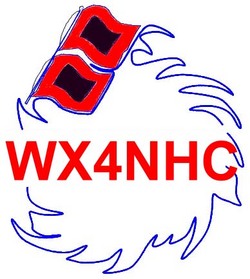 constant ground truth from areas in and around New Orleans," with N5OZG relaying numerous reports of damage to trees, power poles, and structures, as well as flooding. "Many other amateurs on the N5OZG repeater system provided ground truth into the VoIP Hurricane Net despite dealing with direct and significant impacts to their communities and property," Macedo said. "All of these reports were also sent to WX4NHC, the amateur radio station at the National Hurricane Center, as well." Net control stations across the US also assisted with reporting and monitoring.
constant ground truth from areas in and around New Orleans," with N5OZG relaying numerous reports of damage to trees, power poles, and structures, as well as flooding. "Many other amateurs on the N5OZG repeater system provided ground truth into the VoIP Hurricane Net despite dealing with direct and significant impacts to their communities and property," Macedo said. "All of these reports were also sent to WX4NHC, the amateur radio station at the National Hurricane Center, as well." Net control stations across the US also assisted with reporting and monitoring.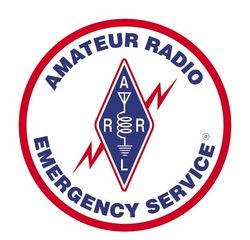 Emergency Coordinator Justin Gleason, KF7DLW, was contacted by WDAM-TV in Moselle, Mississippi, to set up a station that would be available to help
Emergency Coordinator Justin Gleason, KF7DLW, was contacted by WDAM-TV in Moselle, Mississippi, to set up a station that would be available to help 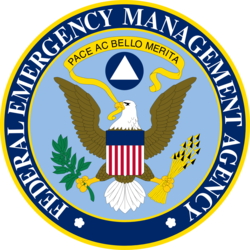
.jpg) higher data rate emissions that many amateur stations are capable of using while active in emergency communications preparedness. ARRL asserted that higher data rates can be critical to timely transmission of relief communications, such as lists of needed and distributed supplies. ARRL noted that radio amateurs are working with federal, state, and local emergency management officials to assist in the communications efforts.
higher data rate emissions that many amateur stations are capable of using while active in emergency communications preparedness. ARRL asserted that higher data rates can be critical to timely transmission of relief communications, such as lists of needed and distributed supplies. ARRL noted that radio amateurs are working with federal, state, and local emergency management officials to assist in the communications efforts..jpg) The latest episode of the On the Air podcast (Episode 20) features a discussion with Oliver Dully, K6OLI, who describes how amateurs use the Winlink network for various public service applications. He also discusses the equipment and software necessary to access Winlink.
The latest episode of the On the Air podcast (Episode 20) features a discussion with Oliver Dully, K6OLI, who describes how amateurs use the Winlink network for various public service applications. He also discusses the equipment and software necessary to access Winlink..jpg) The latest edition of Eclectic Tech (Episode 41) features a conversation with Lin Holcomb, NI4Y, about experiments he is conducting on 8 meters with his recently issued FCC Part 5 Experimental license,
The latest edition of Eclectic Tech (Episode 41) features a conversation with Lin Holcomb, NI4Y, about experiments he is conducting on 8 meters with his recently issued FCC Part 5 Experimental license, 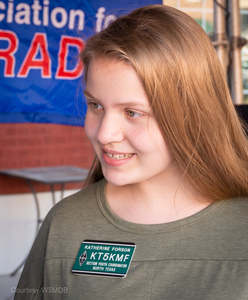 The recipient of the 2021 Hiram Percy Maxim Memorial Award is Katherine M. Forson, KT5KMF, of Plano, Texas. A Technician in 2013 at the age of 9, a General in 2017, and an Amateur Extra in 2018, Katherine's enthusiasm resulted in her appointment as the North Texas Section Youth Coordinator in 2019.
The recipient of the 2021 Hiram Percy Maxim Memorial Award is Katherine M. Forson, KT5KMF, of Plano, Texas. A Technician in 2013 at the age of 9, a General in 2017, and an Amateur Extra in 2018, Katherine's enthusiasm resulted in her appointment as the North Texas Section Youth Coordinator in 2019.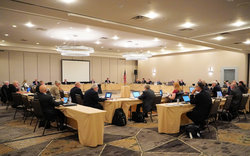 committee, which expanded the scope of the original motion by ARRL Southeastern Division Director Mickey Baker, N4MB.
committee, which expanded the scope of the original motion by ARRL Southeastern Division Director Mickey Baker, N4MB..jpg) Frenaye, K1KI, of West Suffield, Connecticut, and Fred Kemmerer, AB1OC, of Hollis, New Hampshire.
Frenaye, K1KI, of West Suffield, Connecticut, and Fred Kemmerer, AB1OC, of Hollis, New Hampshire.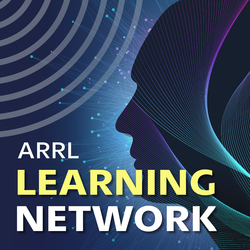 Visit the
Visit the 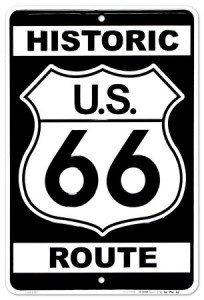 The Citrus Belt Amateur Radio Club's 22nd
The Citrus Belt Amateur Radio Club's 22nd 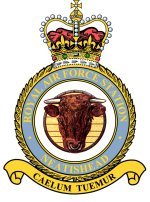 The permanent amateur radio special event station GB2RAF at the RAF Air Defence Radar Museum in Norfolk, England, has shut down, but the museum remains open. The station cited new RF exposure regulations, a lack of operators, lack of public interest, and high noise levels. The station had been on the air for 20 years.
The permanent amateur radio special event station GB2RAF at the RAF Air Defence Radar Museum in Norfolk, England, has shut down, but the museum remains open. The station cited new RF exposure regulations, a lack of operators, lack of public interest, and high noise levels. The station had been on the air for 20 years.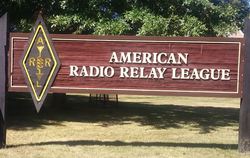 ARRL The National Association for Amateur Radio® has the following employment opportunities at ARRL Headquarters in Newington, Connecticut. Qualified candidates are invited to
ARRL The National Association for Amateur Radio® has the following employment opportunities at ARRL Headquarters in Newington, Connecticut. Qualified candidates are invited to 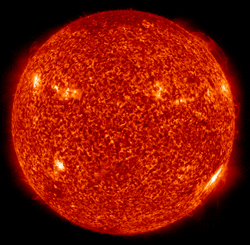 Average daily planetary A index increased from 4.7 to 9.6, and average daily middle latitude A index went from 5.7 to 10.7. Geomagnetic activity peaked on August 27 - 28 due to a coronal mass ejection.
Average daily planetary A index increased from 4.7 to 9.6, and average daily middle latitude A index went from 5.7 to 10.7. Geomagnetic activity peaked on August 27 - 28 due to a coronal mass ejection.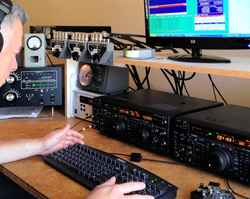 September 4 - 5 -- IARU Region 1 Field Day (SSB)
September 4 - 5 -- IARU Region 1 Field Day (SSB)







